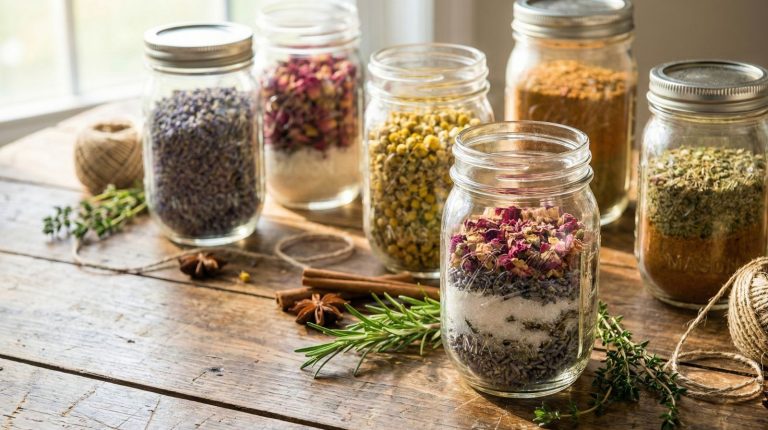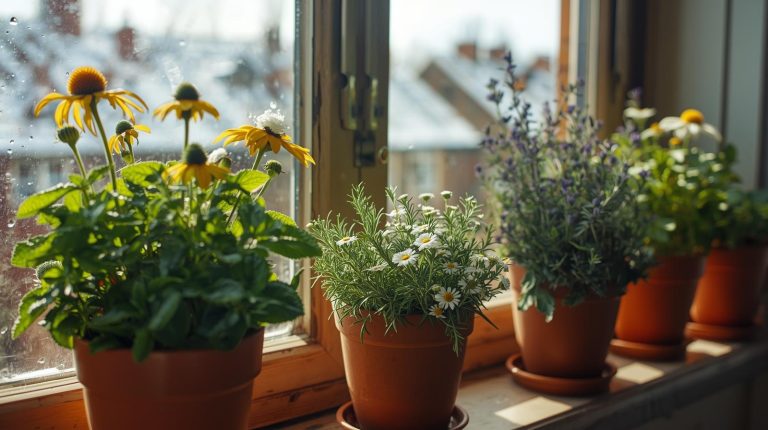Did you know that interactions between herbal medicines and conventional drugs can lead to unexpected side effects? Understanding these interactions is crucial for your safety. In this article, we will decode the complex world of plant medicine interactions, focusing on their safety and potential side effects.
By exploring drug-herb interactions and providing precautions, we aim to empower you with the knowledge needed to make informed decisions about using herbal medicinal plants. So, let’s dive in and uncover the secrets of plant medicine safety together.
Common Herbal Medicine Interactions
In this section, we’ll explore common interactions between herbal medicines and other substances. When it comes to potential risks associated with herbal supplements, it’s important to be aware of their interactions with other medications, foods, and beverages.
Herbal supplements can have interactions that may decrease or increase the effects of certain medications. For example, St. John’s wort, a popular herbal supplement for depression, can interact with antidepressant medications and reduce their effectiveness.
Additionally, some herbal supplements can interact with certain foods or beverages, leading to adverse effects. For instance, grapefruit juice can interact with certain medications and affect their absorption in the body.
It’s crucial to consult with a healthcare provider before starting any herbal supplement to minimize the risk of potential interactions.
Potential Side Effects of Herbal Medicinal Plants
Do herbal medicinal plants have any potential side effects?
While they’re generally considered safe, it’s important to note that herbal medicines can still pose risks. Adverse reactions and toxicity concerns are potential side effects that may occur when using herbal medicinal plants.
Adverse reactions refer to unexpected or unwanted responses to the plant medicine, ranging from mild symptoms like nausea or dizziness to more severe reactions like allergic reactions or liver damage. It’s crucial to be aware of any known allergies or sensitivities to specific plants, as this can increase the risk of adverse reactions.
Additionally, some herbal medicines may contain toxic compounds that can be harmful if consumed in large quantities or over a prolonged period. Therefore, it’s essential to use herbal medicinal plants cautiously and consult with a healthcare professional to minimize the potential side effects.
Safety Considerations for Herbal Medicine Users
Are you aware of the safety considerations for herbal medicine users?
When using herbal medicine, it’s important to be mindful of potential contraindications and manage interactions with other medications. Some herbal medicines can interact with prescription drugs, leading to adverse effects or reduced efficacy. For example, St. John’s wort, a commonly used herbal remedy for depression, can interact with certain antidepressants, birth control pills, and blood thinners.
To ensure safety, it’s crucial to consult with a healthcare professional before starting any herbal medicine regimen, especially if you’re taking other medications. They can provide guidance on potential interactions and help you make informed decisions about your health.
Additionally, it’s important to carefully read and follow the instructions and dosage recommendations provided by the manufacturer or a qualified healthcare professional.
Understanding Drug-Herb Interactions
To ensure the safe and effective use of herbal medicine, it’s essential to understand how it can interact with prescription drugs. Drug-herb interactions can occur when certain compounds in herbal remedies interact with the enzymes responsible for metabolizing drugs in the body. This can lead to changes in drug levels, efficacy, and even toxicity.
Here are four important points to consider regarding drug-herb interactions:
- Potential for increased drug effects: Some herbal remedies, such as St. John’s wort, can induce drug-metabolizing enzymes, leading to increased drug metabolism and potentially reducing the effectiveness of certain medications.
- Risk of drug interactions: Certain herbs, like garlic or ginkgo, can thin the blood and increase the risk of bleeding when taken alongside blood-thinning medications like warfarin.
- Altered drug metabolism: Some herbs, including grapefruit and goldenseal, can interfere with the enzymes responsible for drug metabolism, leading to increased drug levels and potential toxicity.
- Herb-drug interactions vary: The extent and significance of drug-herb interactions can vary depending on factors such as the specific herb, dosage, duration of use, and individual patient characteristics.
Understanding these drug-herb interactions is crucial for healthcare professionals and individuals using herbal remedies to ensure safe and effective treatment outcomes.
Precautions When Using Herbal Medicinal Plants
Continuing the discussion on drug-herb interactions, it’s important to take precautions when using herbal medicinal plants to ensure your safety and minimize potential side effects.
One crucial precaution is to follow dosage guidelines for herbal medicinal plants. Each plant has different active compounds and varying strengths, so it’s essential to adhere to the recommended dosage to avoid adverse effects. Exceeding the suggested amount can lead to toxicity or other harmful outcomes.
Additionally, consulting a healthcare professional before using herbal medicine is highly important. They can provide valuable guidance based on your specific health conditions, medication regimen, and potential interactions with herbal remedies. Their expertise and knowledge can help you make informed decisions and prevent any unwanted complications.
Conclusion
So there you have it, folks! Decoding the world of plant medicine interactions is no easy task, but with a little caution and common sense, we can navigate this herbal maze safely.
Remember, just because something is natural doesn’t mean it’s always safe. Keep an eye out for potential side effects and consult with a healthcare professional.
And if you find yourself in doubt, remember the wise words of our ancestors: ‘When in doubt, don’t go all out with plant medicine!’
Stay safe and keep exploring the wonders of nature!




